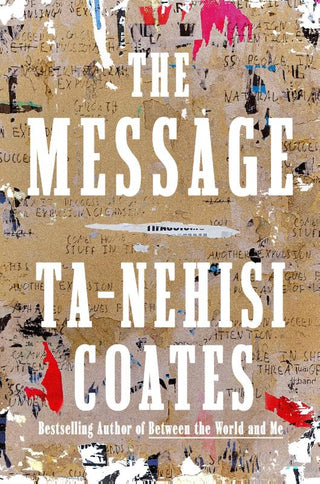Ta-Nehisi Coates originally set off to write a book about writing, in the tradition of Orwell’s classic Politics and the English Language, but found himself grappling with deeper questions about how our stories—our reporting and imaginative narratives and mythmaking—expose and distort our realities.
The first of the book’s three intertwining essays is set in Dakar, Senegal. Despite being raised as a strict Afrocentrist, Coates had never set foot on the African continent until now. He roams the “steampunk” city of “old traditions and new machinery,” but everywhere he goes he feels as if he’s in two places at once: a modern city in Senegal and a mythic kingdom in his mind. Finally he travels to the slave castles off the coast and has his own reckoning with the legacy of the Afrocentric dream.
He takes readers along with him to Columbia, South Carolina, where he meets an educator whose job is threatened for teaching one of Coates’s own books. There he discovers a community of mostly white supporters who were transformed by the “racial reckoning” of 2020. But he also explores the backlash to this reckoning and the deeper myths of the community—a capital of the confederacy with statues of segregationists looming over its public squares.
And in Palestine, Coates discovers the devastating gap between the narratives we’ve accepted and the clashing reality of life on the ground. He meets with activists and dissidents, Israelis and Palestinians—the old, who remember their dispossessions on two continents, and the young, who have only known struggle and disillusionment. He travels into Jerusalem, the heart of Zionist mythology, and to the occupied territories, where he sees the reality the myth is meant to hide. It is this hidden story that draws him in and profoundly changes him—and makes the war that would soon come all the more devastating.
Written at a dramatic moment in American and global life, this work from one of the country’s most important writers is about the urgent need to untangle ourselves from the destructive nationalist myths that shape our world—and our own souls—and embrace the liberating power of even the most difficult truths.
Hardcover, 235 pages.
Ta-Nehisi Coates originally set off to write a book about writing, in the tradition of Orwell’s classic Politics and the English Language, but found himself grappling with deeper questions about how our stories—our reporting and imaginative narratives and mythmaking—expose and distort our realities.
The first of the book’s three intertwining essays is set in Dakar, Senegal. Despite being raised as a strict Afrocentrist, Coates had never set foot on the African continent until now. He roams the “steampunk” city of “old traditions and new machinery,” but everywhere he goes he feels as if he’s in two places at once: a modern city in Senegal and a mythic kingdom in his mind. Finally he travels to the slave castles off the coast and has his own reckoning with the legacy of the Afrocentric dream.
He takes readers along with him to Columbia, South Carolina, where he meets an educator whose job is threatened for teaching one of Coates’s own books. There he discovers a community of mostly white supporters who were transformed by the “racial reckoning” of 2020. But he also explores the backlash to this reckoning and the deeper myths of the community—a capital of the confederacy with statues of segregationists looming over its public squares.
And in Palestine, Coates discovers the devastating gap between the narratives we’ve accepted and the clashing reality of life on the ground. He meets with activists and dissidents, Israelis and Palestinians—the old, who remember their dispossessions on two continents, and the young, who have only known struggle and disillusionment. He travels into Jerusalem, the heart of Zionist mythology, and to the occupied territories, where he sees the reality the myth is meant to hide. It is this hidden story that draws him in and profoundly changes him—and makes the war that would soon come all the more devastating.
Written at a dramatic moment in American and global life, this work from one of the country’s most important writers is about the urgent need to untangle ourselves from the destructive nationalist myths that shape our world—and our own souls—and embrace the liberating power of even the most difficult truths.
Hardcover, 235 pages.

